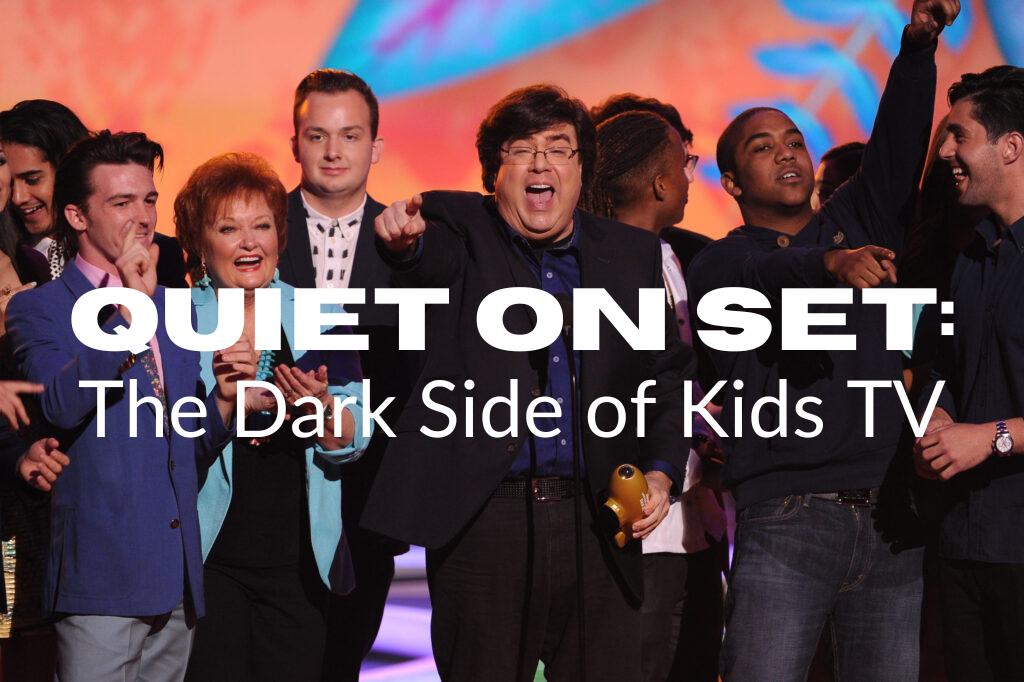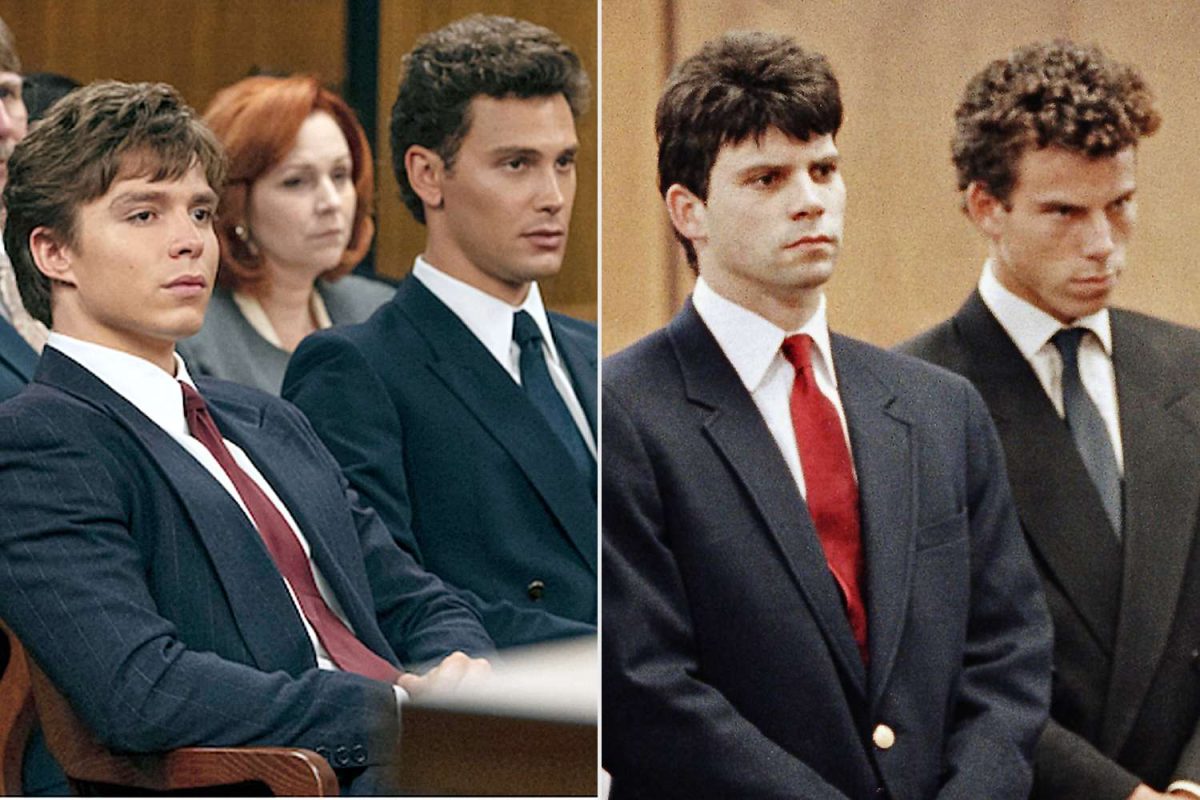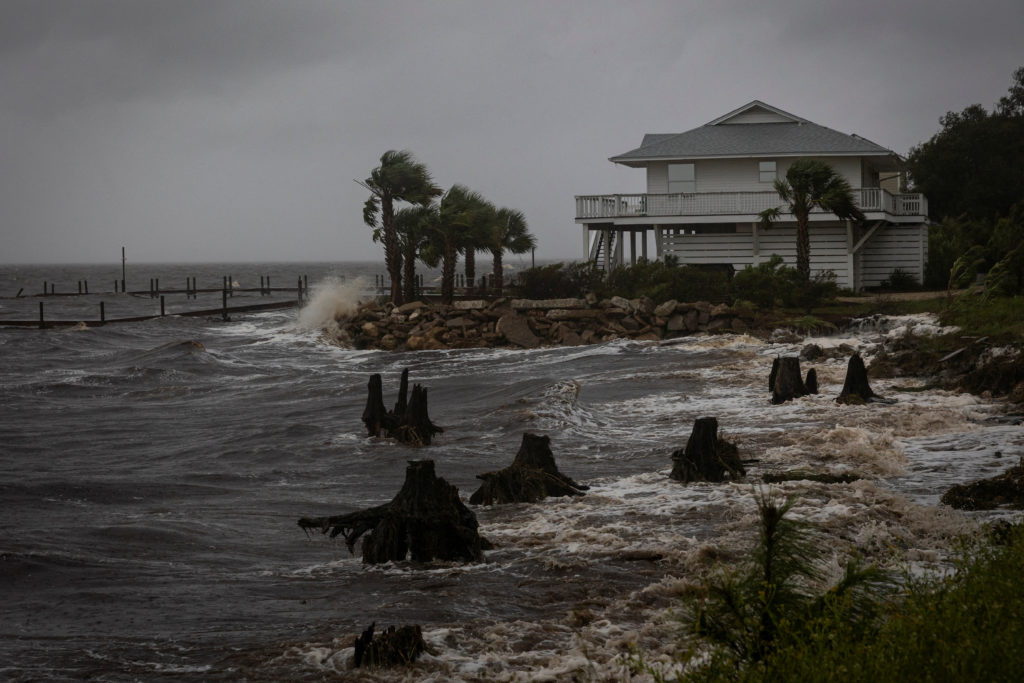Content Warning: The following article contains deeply sensitive topics concerning the abuse experienced by children– reader discretion is strongly advised. Before breaking ground on the specifics for some of these The Silence Behind The Lense cases, it’s crucial for the Trident Staff to emphasize that the decision of some actors to remain silent is a personal choice, and it should not be subject to judgment or disdain.
Growing up, many might find phrases of recognizing deception (such as “appearances can be deceiving” or “all that glitters is not gold”) somewhere in their lives– whether it be spoken by an adult, parent, or mentor. These sayings were often told in hopes of understanding life lessons that inevitably prevent children from steering towards a darkened path with a blindness to harsh reality (a naïveté to actuality). With thousands of generalities thrust upon the stage of Hollywood and soaring through the entertainment industry, one might bet their bottom dollar for ignorance to shine. A harrowing fact as it may be, many well-revered child actors endured what could not have been revealed until nearly a decade later on the hit docuseries Quiet On Set: The Dark Side of Kids TV.
It is possible that many of the students at Corona del Mar High School were exposed to the channels of Nickelodeon, as well as other sensational television shows produced in the early 2000s and 2010s. Shows such as All That, Drake & Josh, Zoey 101, iCarly, Victorious, and more skyrocketed in charts over the past three decades making up some of the most watched television shows for audiences ranging from their early childhood to late teens. However, it was only until recent catalysts such as the #MeToo Movement and the outrage brought on by former Nickelodeon star Jennette McCurdy’s memoir “I’m Glad My Mom Died” (as well as various other instigators) that sparked appropriate and in-depth investigations toward the allegations made the behind-the-scenes. These allegations have targeted several sexual predators and pedophiles who were left with children almost entirely unprotected and re-opened moral questioning for cases numerous observers deem unjustified.
Shattering the disillusionment countless watchers have claimed, one will indeed find numerous child actors candidly opening up about their experiences (while others have decided not). In addition, multiple parents also contribute by sharing their narratives, providing comprehensive insights into their respective experiences within the industry. While some parents stress their precautions when entering the film industry, the audience’s reaction often manifests outrage towards the countless neglect and ignorance other actors may have endured during this period– questioning appropriate parental moralities on children’s welfare. Other cast and crew members have also been targeted as morally responsible for the circumstances taking place and the failure of protection in such environments, however, many claim their inability to better the situation was due to personal circumstances (as well as their ineptitude in foreseeing the dishonesty of their own). Ultimately, the series offers a thorough perspective and analysis, drawing from the insights of the actors, parents, and the cast and crew who directly witnessed these events.
Overvieiwing the members on the set from a perspective of understanding, one will be able to find various pedophiles and sex offenders belonging to the behind-the-scenes cast of Nickelodeon– however, one of the largest offenders to find stands at the head of it all: Dan Schneider. While Schneider is found to be at the root of many issues on the set of Nickelodeon, it is pivotal to note the role he played among the shows he produced. Because Schneider’s television ideas were ones gaining great popularity and rising the ranks of stardom, Nickelodeon valued him at an incredibly high standard. This almost secured his role entirely and gave him creative freedom under the condition that he continued to raise those rankings. With the power he wielded, he insisted on longer hours that exceeded child labor laws, placed multiple staff members in positions of poor health, and ultimately manipulated the well-being of everyone on set. His humor centered on the borderline comedy of adult humor found beneath the writing of popular television shows, his instructions for female staff members to give him messages by the daily most likely went beyond sexual harassment laws, and his handsy personality with child actors went unnoticed as the crew-members were forced to turn the other way. Various parents made complaints but were shut away.
Those were merely a few instances attributed to Dan Schneider. More Nickelodeon scandals and assaults were found in other discreet and hidden corners of the set. One of the responsibilities tasked with Nickelodeon crew members is that of signing on temporary child actors for background characters in shows such as The Amanda Show. In one case, a young child was left under the watch of Jason Handy (a well-liked production assistant on set known for his caring nature and attention to parents, and the homelives of kids). It was reported by a parent on the docuseries that her daughter had developed a close friendship with Handy during her time and, as her daughter wished to be a famous actress, allowed her to communicate with him online to get some advice for future bookings. It wasn’t until Handy sent a lewd picture of him masturbating to the eleven-year-old that the mother decided to steer her daughter’s career pathway in another direction. The mother was hesitant to report the incident to the police immediately, fearing it might invite further scrutiny and criticism of her parenting. She had already endured self-inflicted shame for not being cautious enough with her daughter. Later, though, Handy’s apartment was searched and found to have hundreds of photos and Ziploc bags filled with “souvenirs” of every little girl, and revealed to have assaulted another girl he met on another show.
However, this was not the sole concealed aspect of the set shielded from the public eye. In fact, one of the cases for child actor Drake Bell stemmed from Corona del Mar’s very own Newport Beach. Bell’s story begins at a young age: with a love for film and parents that separated at the age of five, his father had felt compelled to introduce his son to the world of acting– making it a bonding experience for the both of them to share. Over the years, Bell secured various roles in commercials and even some hit shows such as Seinfeld and Jerry Maguire. Eventually, though, Bell was able to secure a more permanent position on The Amanda Show, featuring child star Amanda Bynes. For Bell, joining the show was the beginning of his traumatic experience on set (more specifically as they moved to Nickelodeon on Sunset). It was there that the star was introduced to voice coach Brian Peck– once again, well-loved by the staff on set. When it comes to Peck, Bell’s father was extremely weary of his presence. As he viewed the way Peck would interact with his son, he found the voice coach being rather “hands-on” with acts that Bell could complete himself. While he has no photographic evidence of interactions such as these, he made a comparison to the dynamic Peck shared with Leonardo DiCaprio on the set of Growing Pains. When Bell’s father attempted to confront another crew member for this behavior, he was accused of being homophobic because Peck was gay and “touchy-feely”. Soon after, Bell’s father would further down the road of being ostracized by those in the industry.
Eventually, Drake Bell would team up with child star Josh Peck to be on the hit comedy show Drake & Josh. During this transition, Brian Peck and Drake Bell grew closer over a shared fondness for old black-and-white Hollywood movies, Disneyland, and more (later said by Bell to be meticulously crafted by Peck). As Bell desired to make it further into the industry, and Peck had the connections he did from his experience, he listened to the advice Peck had often– one of which was that “parents shouldn’t be their children’s manager”. This would ultimately put strain on the relationship between Bell and his father, and lead to his mother taking over for Bell’s career. Doubling as a musician, Bell had also booked some shows far and wide in locations of San Diego and LA. While one might occasionally find Schneider or friends from work at his LA shows, it was said by Bell that Peck would take the long drive to go to every one of his San Diego shows as well. Eventually, Peck would also take over the responsibilities of driving Bell from his home to shows– and allowing him to crash on the couch when “driving didn’t seem ideal”. Peck’s assimilation into Bell’s life had become all-encompassing, with Bell saying, “[he] had worked his way into every aspect of my life”. One morning Drake Bell woke up to Peck sexually assaulting him. His first response was shock, followed by an attempt to get out of the situation– he couldn’t, he was fifteen. As time progressed it only got worse, and Bell felt unable to reveal the traumatic experience to anyone as Peck dominated almost every region of his life. Unable to detail the exact events that would occur during this time, Bell told the audience to “think of the worst stuff someone can do to somebody as a sexual assault”. Looking back on his childhood, Bell claims he is only really able to address the abusive events, as every other good memory was blurred from that point forward.
Numerous children working on Nickelodeon sets have faced undisclosed adversities and distressing incidents, some of which have been explored in the docuseries itself. For a deeper understanding of these cases and their outcomes (as well as more detailed and precise information), attempt to seek out platforms streaming this series.







